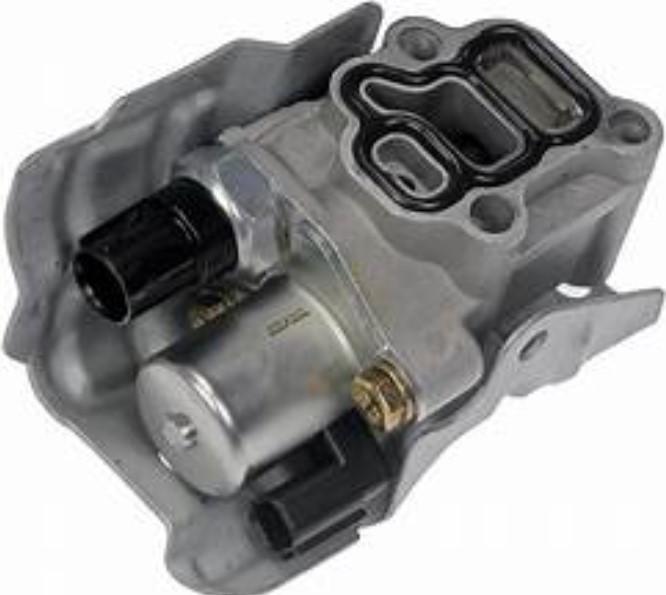Can a bad VVT solenoid cause a no-start? The Variable Valve Timing (VVT) solenoid plays a crucial role in optimizing engine performance, but when it malfunctions, it can lead to a cascade of issues, including a potential no-start situation. In this discussion, we’ll explore the symptoms of a faulty VVT solenoid, how to diagnose the problem, and the consequences if left unaddressed.
What are the symptoms of a bad VVT solenoid?
A malfunctioning Variable Valve Timing (VVT) solenoid can take place via a range of symptoms that affect your vehicle’s overall performance. Recognizing those symptoms early is important for timely prognosis and intervention. Common indicators of an awful VVT solenoid include:
Rough Idling:
When a VVT solenoid is malfunctioning, it can disrupt the engine’s smooth operation during idle. You might experience vibrations, hear abnormal sounds, or note the automobile shaking at a standstill. This symptom is frequently one of the early signs of VVT solenoid symptoms.
Decreased fuel efficiency:
A defective VVT solenoid can affect the engine’s potential to optimize fuel performance. As a result, the car may additionally require extra gas to carry out the same responsibilities, leading to reduced miles per gallon (MPG). Tracking adjustments on your vehicle’s gasoline intake can help pick out capability VVT solenoid issues.
Loss of Power:
The variable valve timing device performs a crucial role in optimizing the engine’s overall performance. A malfunctioning VVT solenoid can disrupt this method, resulting in a noticeable loss of strength. You may experience a lack of responsiveness or struggle at some stage in acceleration.
Engine Stalling:
A failing VVT solenoid might also lead to intermittent or regular engine stalling. Stalling can arise at diverse speeds or some point of idling, posing safety concerns and affecting the general drivability of the vehicle. It is an extra excessive symptom that warrants on-the-spot interest.
Illuminated Check Engine Light:
Cutting-edge cars are equipped with onboard diagnostics that screen diverse engine additives. When the device detects abnormalities associated with the VVT solenoid, it triggers the check engine mild on the dashboard. The illuminated mild serves as a caution that there is a malfunction requiring attention, and diagnostic hassle codes (DTCs) may be retrieved to pinpoint the problem.
Spotting those symptoms directly is vital for addressing VVT solenoid problems earlier than they improve. In case you enjoy any of those signs, it’s recommended to visit a qualified mechanic or automobile expert to diagnose and deal with the problem effectively. Ignoring these signs may result in extra severe engine issues and expanded repair expenses through the years.
VVT solenoid symptoms:
Variable performance is the engine can also show off inconsistent overall performance, mainly at unique RPMs. Audible problems are uncommon sounds, consisting of damn or ticking, and can be indicative of VVT solenoid troubles. Oil flow problems are VVT solenoids rely on the right oil waft; any disruption can cause signs and symptoms like those stated.
How do I know if my VVT solenoid is bad?
Detecting a defective Variable Valve Timing (VVT) solenoid is important for maintaining your engine’s performance. Information on the symptoms of a bad VVT solenoid empowers you to deal with problems promptly.
Scan for Error Codes:
One of the simplest ways to diagnose VVT solenoid troubles is by using using an OBD-II (On-Board Diagnostics) scanner. Join the scanner to the OBD-II port for your vehicle, usually located beneath the dashboard.
Retrieve any error codes related to the VVT gadget. Codes which include P0010 to P0019 are typically related to VVT solenoid malfunctions. The presence of these codes suggests that the onboard computer has detected irregularities inside the variable valve timing device.
Listen for Abnormal Sounds:
Pay close interest to the sounds your engine produces, specifically in the course of acceleration and deceleration. A faulty VVT solenoid can also motivate uncommon noises which include rattling, ticking, or a noticeable exchange in engine tone. Those sounds can be indicative of troubles inside the variable valve timing system, and their presence warrants further research.
Observe Performance:
Frequently display your car’s overall performance to identify any deviations from its everyday conduct. If you are aware of a decline in engine performance, which includes slow acceleration, decreased power, or difficult idling, it can sign a hassle with the VVT solenoid. Moreover, a reduction in fuel efficiency, in which your car covers fewer miles in line with the gallon, can be attributed to a malfunctioning VVT solenoid affecting the engine’s efficiency.
Being proactive in scanning for error codes, listening for abnormal sounds, and looking at adjustments in engine performance permits you to discover potential VVT solenoid problems early on. In case you do encounter these signs and symptoms, it is really helpful to talk with a qualified mechanic for a thorough prognosis and appropriate repairs. Addressing VVT solenoid issues directly can help save you in addition to damage to the engine and ensure the ongoing clean operation of your car.
What happens when the VVT solenoid goes bad?
Timing Issues:
A malfunctioning VVT solenoid can disrupt the right timing of the variable valve timing device. The variable valve timing device optimizes the opening and closing of the engine’s valves based totally on using conditions. Whilst the VVT solenoid is defective, the timing can be inconsistent, affecting general engine overall performance and performance.
Poor Fuel Efficiency:
The variable valve timing machine performs an essential role in maximizing fuel performance via adjusting valve timing based on using demands. When the VVT solenoid is not functioning efficaciously, the engine may additionally fail to optimize fuel utilization effectively. Poor fuel performance effects in reduced gasoline mileage, which means your automobile covers fewer miles per gallon of gasoline fed on.
Increased Emissions:
A malfunctioning VVT solenoid can contribute to higher emissions from the vehicle.
The variable valve timing gadget is designed to decorate combustion performance, and when compromised, it may cause incomplete combustion and extended emissions.
This not handiest influences the surroundings but can also result in your vehicle failing emissions checks.
How Soon Should You Fix the Variable Valve Timing Solenoid?
Address Promptly:
In case you suspect problems with the VVT solenoid based totally on signs like tough idling, decreased fuel performance, or the illumination of the test engine mild, it is essential to address the trouble right away. Use an OBD-II scanner to retrieve mistake codes and pinpoint the unique problem with the VVT machine.
Prevent Further Damage:
Ignoring VVT solenoid issues can lead to extra engine troubles and doubtlessly more luxurious upkeep. Right away addressing the hassle helps save you in addition to damage to the engine and guarantees that the variable valve timing gadget operates optimally. Early intervention can save money in the end and keep the general fitness and efficiency of your automobile.
Also Read: Steve Hamilton Car Collection Net Worth
Conclusion
To conclude, the question “Can a bad VVT solenoid cause a no start?” illustrates how important the Variable Valve Timing (VVT) solenoid is to the engine functioning smoothly.
A malfunctioning VVT solenoid can lead to timing troubles, poor fuel efficiency, and expanded emissions. It is critical to deal with these issues right away to prevent additional damage to the engine and ensure the highest quality functioning of the variable valve timing gadget. Everyday protection and well-timed repairs contribute to the toughness and performance of your vehicle.





